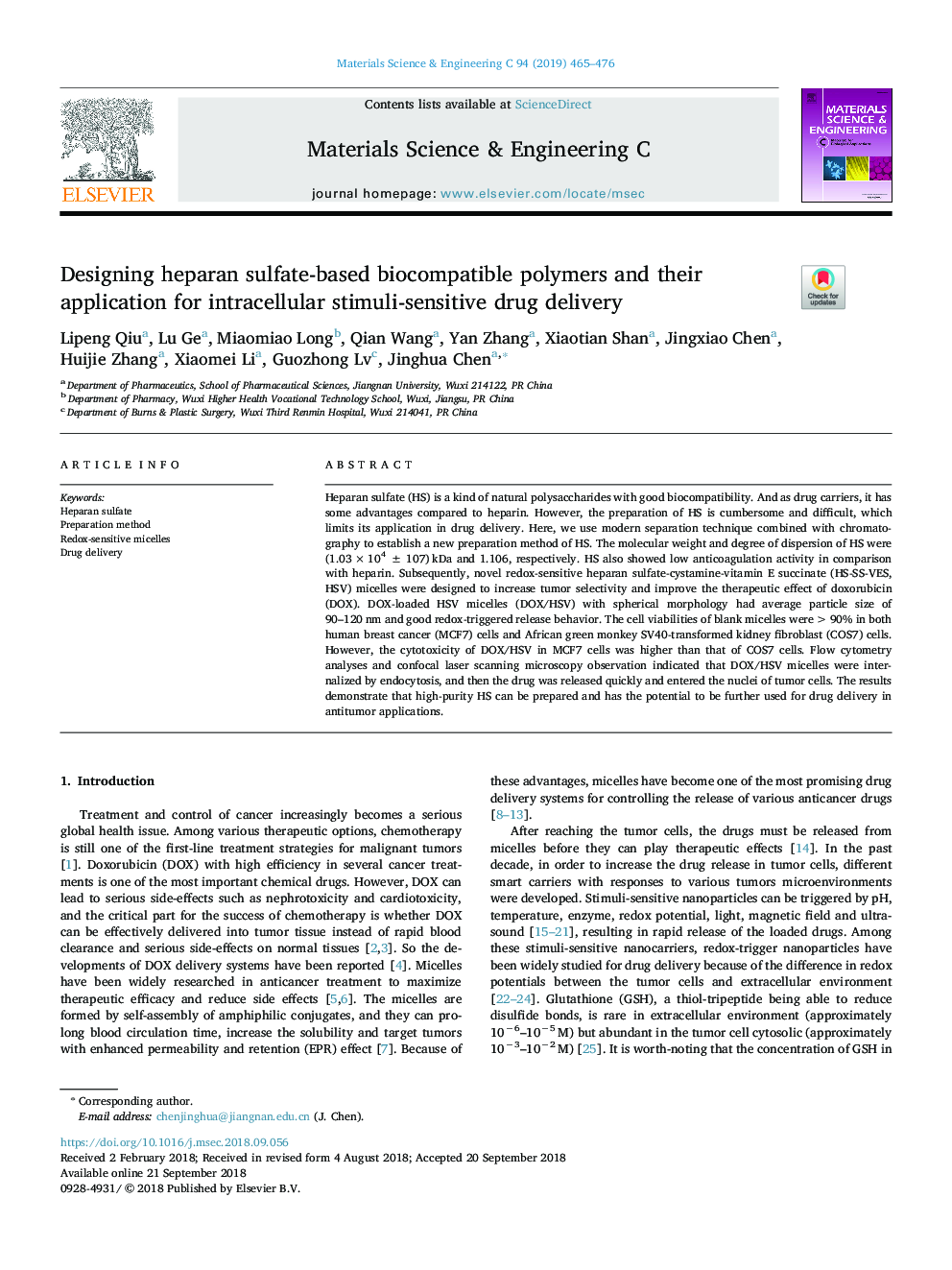| Article ID | Journal | Published Year | Pages | File Type |
|---|---|---|---|---|
| 11026832 | Materials Science and Engineering: C | 2019 | 12 Pages |
Abstract
Heparan sulfate (HS) is a kind of natural polysaccharides with good biocompatibility. And as drug carriers, it has some advantages compared to heparin. However, the preparation of HS is cumbersome and difficult, which limits its application in drug delivery. Here, we use modern separation technique combined with chromatography to establish a new preparation method of HS. The molecular weight and degree of dispersion of HS were (1.03â¯Ãâ¯104â¯Â±â¯107)â¯kDa and 1.106, respectively. HS also showed low anticoagulation activity in comparison with heparin. Subsequently, novel redox-sensitive heparan sulfate-cystamine-vitamin E succinate (HS-SS-VES, HSV) micelles were designed to increase tumor selectivity and improve the therapeutic effect of doxorubicin (DOX). DOX-loaded HSV micelles (DOX/HSV) with spherical morphology had average particle size of 90-120â¯nm and good redox-triggered release behavior. The cell viabilities of blank micelles were >90% in both human breast cancer (MCF7) cells and African green monkey SV40-transformed kidney fibroblast (COS7) cells. However, the cytotoxicity of DOX/HSV in MCF7 cells was higher than that of COS7 cells. Flow cytometry analyses and confocal laser scanning microscopy observation indicated that DOX/HSV micelles were internalized by endocytosis, and then the drug was released quickly and entered the nuclei of tumor cells. The results demonstrate that high-purity HS can be prepared and has the potential to be further used for drug delivery in antitumor applications.
Related Topics
Physical Sciences and Engineering
Materials Science
Biomaterials
Authors
Lipeng Qiu, Lu Ge, Miaomiao Long, Qian Wang, Yan Zhang, Xiaotian Shan, Jingxiao Chen, Huijie Zhang, Xiaomei Li, Guozhong Lv, Jinghua Chen,
